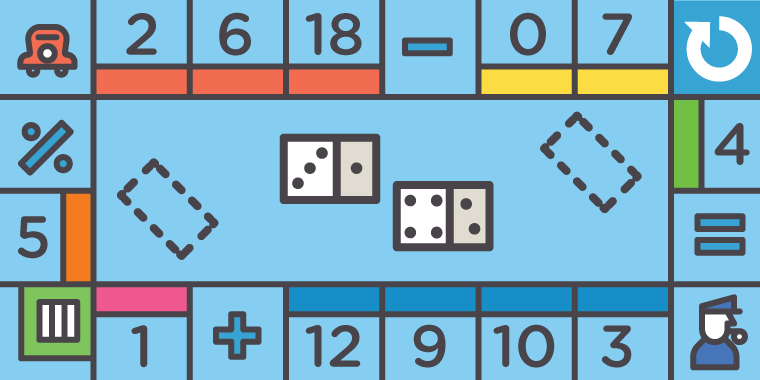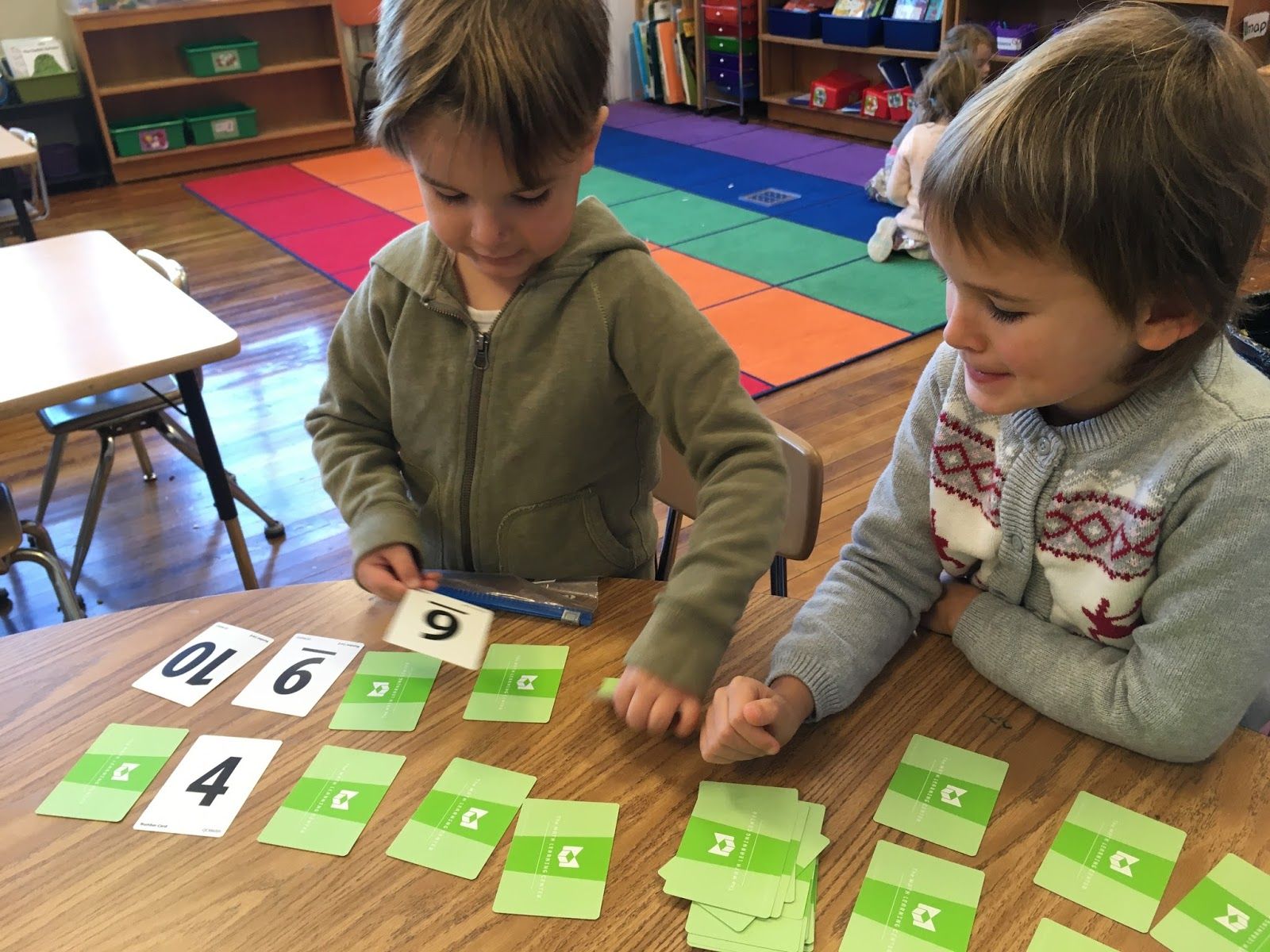Mathematics is a fundamental skill that plays a crucial role in various aspects of our lives, from daily tasks to complex problem-solving in professional fields. However, for many, the mere mention of math can elicit feelings of dread or anxiety.
Educators and parents are turning to math games as a powerful educational tool to change this perception and make learning math enjoyable. In this article, we'll explore ten compelling reasons why you should consider incorporating math games into your learning journey.
Engagement Through Fun and Play:
- Learning through play is an effective way to engage students of all ages.
- Math games transform abstract concepts into enjoyable challenges.
- Gamification encourages active participation and boosts motivation. Math games turn the traditionally daunting task of learning math into an enjoyable experience. They create an environment where learning becomes play, reducing the fear and anxiety often associated with mathematics.
Enhancing Problem-Solving Skills:
- Math games present players with various problems to solve.
- These games stimulate critical thinking and strategic planning.
- Players learn to approach problems from different angles. Engaging in math games hones problem-solving skills by encouraging players to think critically and strategize. These skills are transferable to real-life situations, fostering better decision-making.
Building Confidence:
- Success in math games boosts self-esteem.
- Overcoming challenges in games provides a sense of accomplishment.
- Increased confidence leads to a more positive attitude toward math. Math games offer a safe space to make mistakes and learn from them. As players achieve small victories, their confidence in their math abilities grows, helping to alleviate math-related anxiety.
Personalized Learning:
- Math games can be tailored to individual skill levels.
- They adapt to the player's progress, providing appropriate challenges.
- Personalized learning enhances comprehension and retention. Math games can be customized to cater to various skill levels, ensuring that learners are neither overwhelmed nor bored. This adaptability promotes a deeper understanding of mathematical concepts.

Accessibility and Convenience:
- Math games are readily accessible on various platforms.
- They can be played anywhere and at any time.
- Accessibility promotes continuous learning and practice. With the advent of technology, math games are accessible on smartphones, tablets, and computers, allowing learners to practice math at their convenience. This flexibility makes consistent learning more achievable.
Multi-sensory Learning:
- Math games often incorporate visuals, audio, and tactile elements.
- Multi-sensory experiences enhance comprehension.
- Different learning styles are accommodated. Math games provide a multi-sensory learning experience, catering to diverse learning styles. This approach reinforces mathematical concepts through various sensory inputs.
Promoting Healthy Competition:
- Math games often involve competition with peers or oneself.
- Healthy competition encourages improvement.
- Players strive to outperform their previous scores. Healthy competition is a natural component of math games. It motivates players to continuously challenge themselves and strive for improvement, making learning math an exciting journey.

Teamwork and Collaboration:
- Some math games encourage teamwork and collaboration.
- Collaborative problem-solving fosters social skills.
- Group dynamics teach valuable life lessons. Certain math games require players to work together to solve problems. These collaborative experiences not only enhance math skills but also develop teamwork and communication abilities.
Real-world Application:
- Math games often simulate real-world scenarios.
- Players apply mathematical concepts in practical contexts.
- This bridges the gap between theory and application. Math games provide opportunities to apply mathematical knowledge in practical scenarios, making the subject matter more relatable and demonstrating its real-world relevance.
Long-term Academic Success:
- Regular engagement with math games leads to improved math proficiency.
- Proficiency in math opens doors to various career opportunities.
- A strong foundation in math is essential for success in STEM fields. By incorporating math games into your learning routine, you pave the way for long-term academic success. Proficiency in math is a valuable skill that can open doors to a wide range of career opportunities, particularly in STEM (Science, Technology, Engineering, and Mathematics) fields.
Here's a list of free online math games that cover a range of mathematical topics and are suitable for various age groups:
- Offers a wide variety of math games, puzzles, and brain teasers for all ages.
- Features math games and activities aligned with educational standards.
- Provides interactive math games and lessons for young children.
- Offers a collection of free math games and logic puzzles.
- A role-playing math game for kids that adapts to their skill level.
- Offers free math practice exercises and games for various grade levels.
- Provides a variety of educational games, including math games for kids.
- Features a selection of math games categorized by grade level.
- Offers a range of interactive math games for different ages.
- Focuses on multiplication games and activities.
- Offers math games with popular characters for younger children.
- Offers a variety of math games for different grade levels.
- Features math games set in a space-themed universe.
- Offers math games, puzzles, and quizzes for younger learners.
- Provides free math games and competitions for students.
- Offers educational games, including math games for elementary students.
- Focuses on math games designed for kids.
- Offers a wide range of educational games, including math games for kids.
- Provides multiplayer math games for students to play against classmates or friends.
Remember to check the age appropriateness of these games and select ones that align with the specific math skills you want to practice or teach. These free online math games can be a fun and interactive way to reinforce mathematical concepts and improve math skills.
Conclusion
Incorporating math games into your learning journey offers a myriad of benefits, from making math fun and engaging to fostering essential life skills. Whether you're a student looking to improve your math skills or an educator seeking innovative teaching methods, math games provide a valuable tool to enhance mathematical comprehension and confidence. So, why wait? Start exploring the world of math games today and unlock your full mathematical potential.

Here are some frequently asked questions (FAQs) related to using math games for learning:
What are math games for learning?
Math games for learning are educational games designed to teach and reinforce mathematical concepts in an engaging and enjoyable way. They often involve problem-solving, critical thinking, and strategy, making math more accessible and fun.
Are math games suitable for all age groups?
Yes, math games can be adapted to suit learners of all ages, from young children to adults. There are math games available for various skill levels, ensuring that learners can find games appropriate for their needs.
How do math games help with math anxiety?
Math games create a low-pressure environment where learners can make mistakes without fear of failure. Success in these games boosts confidence and reduces anxiety associated with math, making it a more positive experience.
Can math games replace traditional math instruction?
Math games can be a valuable supplement to traditional math instruction, but they are not typically a replacement. They can reinforce concepts learned in the classroom and provide additional practice and engagement.
What technology is required to play math games?
Math games are available on various platforms, including smartphones, tablets, and computers. Depending on the specific game, you may need a device with internet access or a downloaded app.





